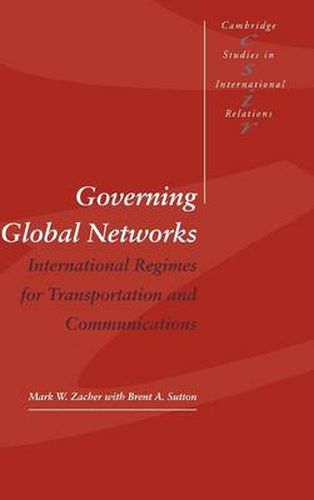Readings Newsletter
Become a Readings Member to make your shopping experience even easier.
Sign in or sign up for free!
You’re not far away from qualifying for FREE standard shipping within Australia
You’ve qualified for FREE standard shipping within Australia
The cart is loading…






Governing Global Networks argues that most international regimes are grounded in states’ mutual cooperation, and not in the dictates of the most powerful states. It focuses on the regimes for four important international industries - shipping, air transport, telecommunications and postal services. Of particular importance to these regimes have been states’ interests in both the free flow of commerce and their policy autonomy. The authors examine the relationship between these potentially conflicting goals. In particular they trace the impact of deregulation, which has led some states increasingly to place gains from economic openness ahead of their desire to maintain a high degree of control of their own economies; and to the decline of the traditional cartel elements of these regimes. This analysis is an important contribution to theoretical debates between neo-realists and neo-liberals in the study of international organisations and international political economy.
$9.00 standard shipping within Australia
FREE standard shipping within Australia for orders over $100.00
Express & International shipping calculated at checkout
Governing Global Networks argues that most international regimes are grounded in states’ mutual cooperation, and not in the dictates of the most powerful states. It focuses on the regimes for four important international industries - shipping, air transport, telecommunications and postal services. Of particular importance to these regimes have been states’ interests in both the free flow of commerce and their policy autonomy. The authors examine the relationship between these potentially conflicting goals. In particular they trace the impact of deregulation, which has led some states increasingly to place gains from economic openness ahead of their desire to maintain a high degree of control of their own economies; and to the decline of the traditional cartel elements of these regimes. This analysis is an important contribution to theoretical debates between neo-realists and neo-liberals in the study of international organisations and international political economy.